#Story: Asking for Advice
Explore tagged Tumblr posts
Text
How can I become a writer?
Write.
But I don't know where to start.
Write.
But I'm worried.
WRITE.
What if nobody likes it?
W R I T E
What if it's not very good?
Write. Write. WRITE. WRITE.
W
R
I
T
E
Write
Write. Write. Write. Write. Write. Write.
Write.
Write
Write
Write
Write
Write
Write
Write
Write
W R I T E
Write write write
Write
Write
#writer things#writer stuff#writing community#creative writing#writeblr#playwright#playwriting#screenplay#short story#writing#writers on tumblr#writers and poets#writing tools#writerscommunity#writing advice#writing asks
9K notes
·
View notes
Note
Do you have any advice for a character who has a sort of sacrificial lamb complex? A savior complex but not as in a hero to save the day, but as in they don't believe they deserve to save themselves?
How to Write a Sacrificial Character
Backstory and Motivation
Traumatic Past: Explore the character’s history. Perhaps they’ve experienced abandonment, betrayal, or loss, leading them to internalize the belief that their worth is tied to suffering for others.
Family Expectations: They may come from a family that emphasizes self-sacrifice or has a history of martyrdom, teaching them that their own needs are secondary to others.
Guilt and Responsibility: The character might feel an overwhelming sense of guilt for past failures, believing that they owe it to others to endure hardship or take on burdens.
Internal Conflict
Self-Worth Issues: Illustrate their struggle with self-worth. They might dismiss compliments or feel undeserving of happiness, using phrases like “I don’t deserve this” or “I have to earn my place.”
Desire for Connection: While they may push others away, they also yearn for connection and love, creating an internal tug-of-war between wanting to be saved and believing they are unworthy of it.
Sacrificial Actions
Small Acts of Sacrifice: Show them making small sacrifices for friends or loved ones, like skipping meals or taking on additional work, which reinforces their belief that they should suffer for others’ well-being.
Dramatic Moments: Create pivotal scenes where they are put in a position to sacrifice themselves for someone else—physically or emotionally. This can highlight their motivations and lead to significant character development.
Interactions with Others
Supportive Characters: Introduce characters who try to save or help them, but the sacrificial character resists, believing their problems aren’t worth the effort. This can create tension and deepen their internal struggle.
Small Acts of Kindness: Have moments where others go out of their way to help them, reinforcing that they are worthy of care and support. This can include simple gestures, affirmations, or sacrifices made on their behalf.
Conflict with a Mentor or Friend: A mentor figure might challenge this belief, encouraging them to see their value and fight for themselves, leading to moments of growth and resistance.
Gradual Change
Moments of Clarity: Show them having fleeting moments of realization where they understand their self-worth, possibly triggered by a significant event or dialogue with another character.
Catalyst for Change: Introduce a scenario where they must choose between self-sacrifice and self-preservation, forcing them to confront their beliefs head-on.
Life-Altering Experience: Put the character in a situation that forces them to confront their fears, such as a near-death experience or a pivotal choice between saving themselves or others. This moment can act as a wake-up call to their worth.
Acts of Courage: Have them step up in a crisis, leading to a moment where they save someone else and realize their capability and value. This can help them see that they have something to offer.
Turning Point: Create a climactic moment where the character realizes they deserve to save themselves, possibly triggered by witnessing someone else sacrifice themselves for them, prompting a realization of their worth.
Final Confrontation: In the final confrontation (with a villain or personal demon), let them stand up for themselves, verbalizing their worth and challenging the beliefs that have held them back.
Symbolism and Themes
Recurring Motifs: Use symbols that represent sacrifice and self-worth, like broken mirrors (self-perception) or shadows (their past). These can help reinforce their internal struggles visually throughout the narrative.
Redemption Arc: If they ultimately find a way to save themselves or allow others to save them, showcase this as a powerful moment of growth, suggesting that self-worth and love are intertwined.
Emotional Depth
Show Vulnerability: Allow the character to express their fears and doubts, whether through dialogue, journaling, or introspection, making their internal battles relatable and poignant.
Balance with Humor: If appropriate for your story, consider moments of humor or lightness to juxtapose their darker thoughts, showing that they are more than their complex.
#writing prompts#creative writing#writeblr#story prompt#prompt list#ask box prompts#how to write a sacrificial character#how to write#writing tips#writing advice#writing help#writing resources#on writing#writing tools#sacrificial lamb
3K notes
·
View notes
Text
How many drafts should you go through before deciding your novel is ready?
There's no specific (official) number, but to create a foundation that ensures you don't burn out quickly, overwork yourself, and get tired of your work, I'll say four. It's the same number I use for my students since most of them have other engagements outside writing that take up a copious amount of their time.
1. Initial or Zero Draft:
This draft is also called the 'just write' draft. Focus on putting that idea down. As the creative juices flow, let it all out. Don't worry about perfection or coherence; the goal is to capture your raw ideas and get the story out of your head and onto the page.
2. Second Draft:
This is the plot draft. Read through what you have written to see if every detail you added was meant to be. Here, you focus on the structure of your story. Ensure that the plot makes sense, the pacing is right, and there are no major plot holes. This is where you might add, remove, or rearrange scenes to improve the overall flow of the narrative.
3. Third Draft:
Character development draft. In this stage, you look deeper into your characters. Make sure their motivations, backgrounds, and arcs are well-defined and consistent. Flesh out their personalities and relationships, ensuring they are compelling and believable. This is also a good time to refine dialogue and make sure it sounds natural and true to each character. That's for this drafting stage.
4. Fourth Draft:
Grammar and punctuation draft. This is the polishing stage. Focus on correcting grammatical errors, punctuation, and spelling mistakes. Pay attention to sentence structure, word choice, and overall readability. This draft is about making your manuscript as clean and professional as possible.
Keep in mind that the goal is to define what completion means for each draft. Once you reach the goal, take a break and return to it for the next drafting stage.
Some writers pay people to carry out some of the drafting stages for them, so if you fall into that category, you might have fewer drafting stages to handle yourself!
Reblog to save for later 😉
Thank you all for the support 💜!
#writing#writeblr#writers on tumblr#writer#writers and poets#writerscommunity#writing community#wattpad#ao3 writer#a03 writer#on writing#writing stuff#creative writing#writing tips#writers#my writing#writing things#writing strategies#writing struggles#writing stories#writing style#story writing#writing advice#writing asks#writing and poetry#writing a book#writing about writing#writing blog#writing challenge#writing discord
2K notes
·
View notes
Text
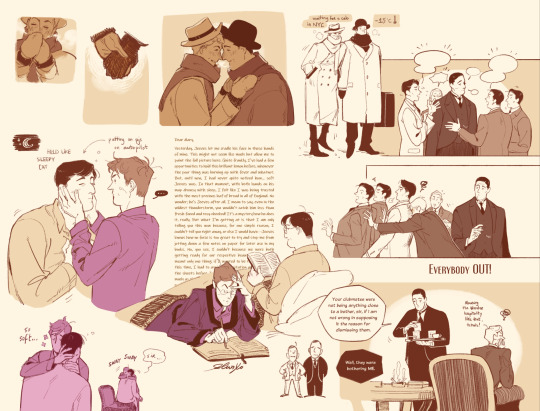
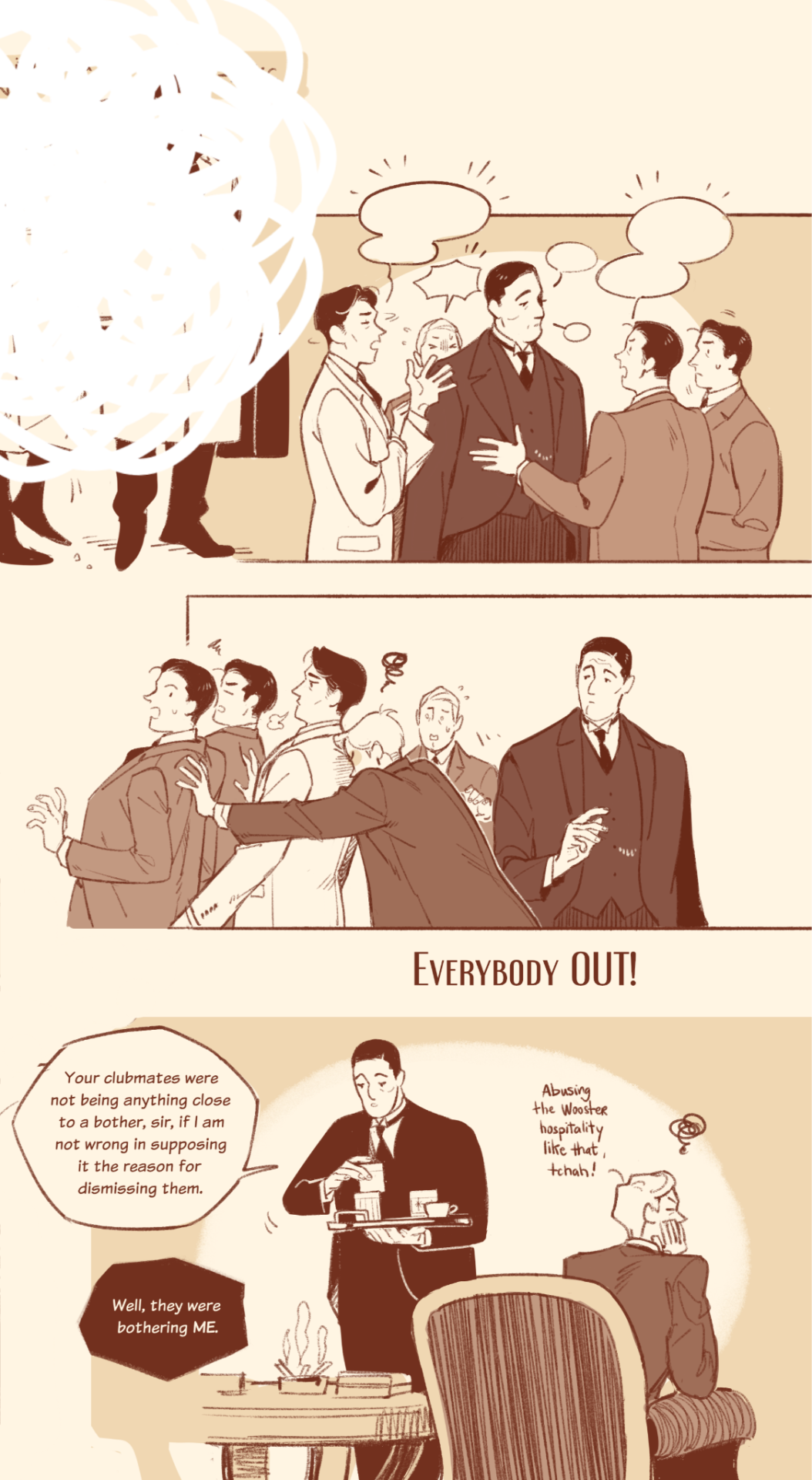
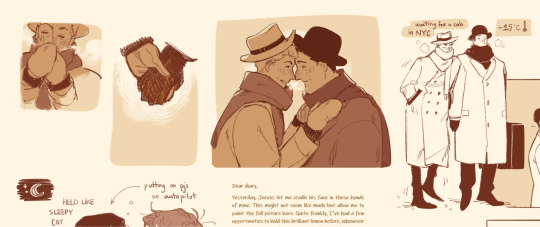
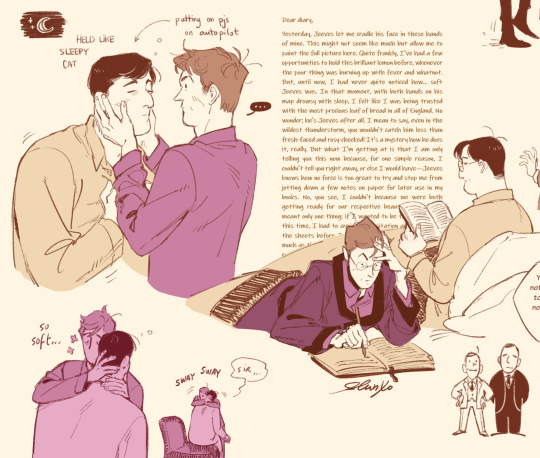
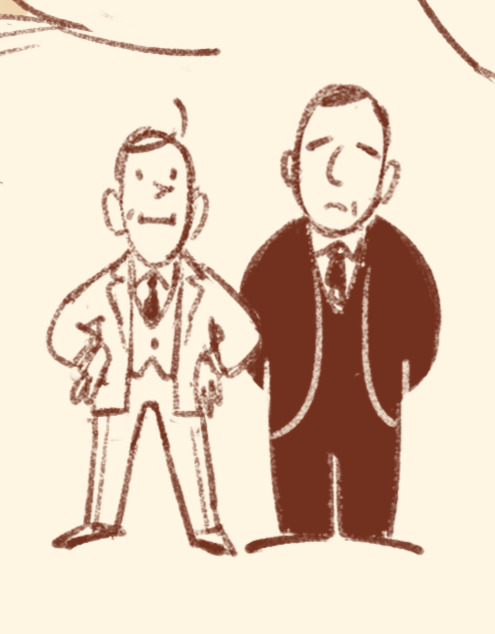
uhh bunch of doodles
(diary entry under the cut)
Dear diary,
Yesterday, Jeeves let me cradle his face in these hands of mine. This might not seem like much but allow me to paint the full picture here. Quite frankly, I've had a few opportunities to hold this brilliant lemon before, whenever the poor thing was burning up with fever and whatnot. But, until now, I had never quite noticed how... soft Jeeves is. In that moment, with both hands on his map drowsy with sleep, I felt like I was being trusted with the most precious loaf of bread in all of England. No wonder; he's Jeeves after all. I mean to say, even in the wildest thunderstorm, you wouldn't catch less than fresh-faced and rosy-cheeked! It's a mystery how he does it, really.
But what I'm getting at is that I am only telling you this now because, for one simple reason, I couldn't tell you right away, or else I would have—Jeeves knows how no force is too great to try and stop me from jotting down a few notes on paper for later use in my books. No, you see, I couldn't because we were both getting ready for our respective beauty sleep, which meant only one thing: if I wanted to be the little spoon this time, I had to avoid any hesitation and nosedive in the sheets before Jeeves did, and lounge invitingly—as much as the willowy Wooster frame could—as to leave no room for arguments. One can enjoy doing the fulfilling act of embracing but one can also desire one's corpus to be enveloped by warmth itself, what. I didn't get to say as much right then though because, to my surprise, Jeeves had already followed me without a word and wrapped his arms round me. Directly, I felt like the happiest pillow on earth, as any pillow would be while being so firmly held and loved. But, again, I did not voice the thought; I simply let myself melt into the arms of Jeeves.
So, you see, there could possibly have been no time to grab a pen and fill you, dear diary, in on the whole binge.
#jeeves and wooster#bertie wooster#reginald jeeves#shinxo art#i kinda need to lock in and finish some comics#but the thought of jeeves's height difference with everyone else around him completely distracted me o(-(#like kittens asking advice from the old wise dog...#also i like the idea that the novels are a thing in their world and were written by bertie himself#i add to this that he keeps a diary/notebook for his ideas and everyday life thoughts (with the occasional doodles of jeeves)#which made me try my hand at some unserious sappy writing#frankly idk which is harder to capture: bertie's voice or jeeves's... they both tend to be quite prolix while still telling a story
302 notes
·
View notes
Text
Writing Physical Description
Continuation of my Character Building post in a brief overview of describing physical traits.

When portraying a character through physical description, it's important to focus on key details. This can include:
Height, hair color or length, build, facial features/eye color, distinctive markings like scars or tattoos, how they dress, and many more.
Ex:

Note: Not everything has to be written at face value. When necessary, physical description can be made interesting with figurative language or when interacting with other elements like setting. If a character’s hair is black, you don't always have to leave it at “their hair is black.”
Ex:

Food for thought: Describing someone through the perspective of another character doesn't have to remain objective. Playing around with perspective/tone can help with characterization or even building an unreliable narrator.
In this case, the narrator could’ve said that the character was too tall (indicating a preference), or that a heavy stack of rings on each finger blinded them (hyperbole can convey the narrator as dramatic)
Asks are open if you want more specific tips/prompts! Happy writing!
#writersbloxx#creative writing#my writing#short story#snippet#writers on tumblr#writers community#story#writing#writeblr#writersblr#writers and poets#writers blog#prompt list#prose#writing prompt#writerscommunity#writing tips#writing things#writing thoughts#writing asks#writing advice#aspiring author#aspiring writer
737 notes
·
View notes
Note
been RA affirming that for about a week now that I shift at every attempt, go to sleep every night knowing that ILL shift but can’t seem to? I know that itself might be an assumption but I’m only saying this here I been having the best mindset possible



𝓑AE, 𝓢AY 𝓘T 𝓦ITH 𝓜E:
𝓕ocus on the dr, not the method!!
𝓕ocus on the dr, not the method!!
𝓕ocus on the dr, not the method!!
𝓣he power is not in the methods, it is in you!!
𝓣he power is not in the methods, it is in you!!
𝓣he power is not in the methods, it is in you!!
𝓨ou do not rely on the methods to shift!!
𝓨ou do not rely on the methods to shift!!
𝓨ou do not rely on the methods to shift!!
𝓨ou don't need to affirm throughout the weeks to induce going to sleep every night!! you just do it because it's easy and natural!! you've done that even before your birth!!
𝓑ut the "action" for sleeping is the same as inducing meditation, void state, lucid dreaming, astral projecting (aka OBE), and reality shifting!!
𝓢o why overcomplicate it to the point where you require of yourself a new mindset where you bombard yourself with so many affs, tell me it's failing, but that you've had the best mindset?



#4d reality#desired reality#reality shifting#shiftblr#shifting motivation#shifting reality#reality shift#shifting blog#anti shifters dni#shifting antis dni#shifting consciousness#shifting thoughts#shifting stories#shifting realities#shifters#shifting#reality shifter#shiftblr community#shifting community#shifting diary#shifting journey#shifting memes#shifting success#shifting to desired reality#shiftingrealities#shifting advice#dr s/o#dr self#anon ask#self concept
214 notes
·
View notes
Note
How do you write a character who is mature for their age?
My characters are all between 18-14 and act a lot more mature than their age due to how they grew up? There are about 10+ of them, and how do I make them act grown up but still be kids at the same time, while still holding leadership positions.
Hi, thanks for asking! I love this question—you'll find this in a lot of narratives, and if your characters have grown up in harsh or demanding environments, it makes sense that they’d be more responsible, insightful, or emotionally resilient than their peers; but it's important for the readers to still feel that they're young. Here are some tips.
Writing Mature Young Characters
1. Maturity through experience, not just speech
Your characters might sound older because of what they've been through, not just because they use fancy vocabulary or speak in deep philosophical metaphors. This maturity could come from:
The way they handle stress and responsibility
Their ability to assess situations logically rather than emotionally (though they’ll still have emotional moments)
The way they interact with adults (sometimes as equals, sometimes with hidden insecurity)
For example, a teenager leading a resistance group might have a sharp strategic mind, but that doesn’t mean they don’t feel the pressure of failure or secretly wish someone else could handle it. Let that complexity show.
2. Give them moments of being kids.
No matter how much responsibility they carry, they’ll still have cracks in their armour that shows their youth. Examples:
Stupid little habits (chews on their sleeves, obsessed with collecting something odd, still secretly sleeps with a stuffed animal, etc.)
Impulsive moments where emotions override logic (storming off, making reckless decisions, blurting out feelings they later regret)
A desire for normalcy—maybe they joke about things they missed out on or envy people their age who don’t have the same burdens
Even the most hardened of warriors is still a kid (in the context of this ask) and might make inside jokes, argue over dumb things, or mess around when the stakes aren’t high. Or they might make tactical decisions with the confidence of an adult, but forget to eat, sleep, or take care of themselves like a kid.
3. Leadership that feels earned, not forced
If your teens are in positions of power, show why they’re there. Are they the only ones willing to take charge? Are adults absent, dead, or untrustworthy? Did they prove themselves through skill or sheer survival? For example, you can make it feel:
Respected, not convenient—others follow them because they believe in them, not just because the story needs them in charge.
Hard-earned—maybe they had to fight for authority, prove themselves, or take on responsibilities that no one else wanted.
Lonely—leadership is isolating, especially for teens who are aware they’ve lost the freedom of childhood.
At the same time, they might struggle with things like imposter syndrome or self-doubt.
4. Age-appropriate emotional reactions
Even if they talk or act like adults, their emotional responses should remind readers that they aren't. They might:
Feel things too intensely (like anger, grief, and joy to the point of being consuming or reckless), like snapping in frustration when they’re stressed instead of handling things with full adult restraint
Have a skewed sense of consequences (thinking they’re invincible, or believing failure means everything is doomed)
Struggle with emotional control, like bottling everything up until they explode or lashing out because they don’t have healthy coping mechanisms
Maybe they can negotiate peace between feuding clans but are completely helpless when dealing with personal rejection; or they can keep calm under fire but cry when no one is watching. Things like this not only add depth to your characters, but remind readers that they're still babies.
5. Mature, but not omniscient
For instance, a fifteen-year-old might be commanding an army in battle but have no idea how to comfort a crying friend. Examples:
A teenager who had to raise their siblings will have strong leadership and nurturing skills, but might not know how to handle romance or peer friendships well
Still longing for normalcy in ways they don’t admit
Thinking they know everything, but getting blindsided by something outside their experience
6. Let them have growth arcs.
One of the best ways to balance maturity and youth is to show them learning. Maybe they act like they know everything, only to be humbled by a mistake; or assume they have to be strong all the time, but later realise they need help too and it's alright to ask for it. This'll remind the audience that while they may be wise beyond their years, they are still growing.
7. Inexperience
As many skills and responsibilities they may have, a teenager will likely still be inexperienced. For example:
They need to make difficult decisions since they're in leadership positions, but still struggle with the weight of it
Don’t yet have the emotional distance to detach from losses
Competent in battle but still hesitate before killing
8. Speech, humour, & interests
A mature teen might be more articulate and well-spoken, but they won’t sound like a university professor. They might still joke, use slang, or get snarky when comfortable.
It's also important not to forget about personal hobbies and random little things they get excited about. They may be world-weary, but they can still be dorky about their interests.
9. They might not have all the power.
Even if they hold leadership positions, adults might still underestimate them or try to manipulate them; they might be technically in charge but constantly fighting to be taken seriously, or believe they have control over their own lives only to realise they’re still at the mercy of the systems around them.
---
Hope this helped! Happy writing ❤
Previous | Next
#ask#writeblr#writing#writing tips#writing help#writing advice#writing resources#creative writing#writers on tumblr#writer help#character development#writerscommunity#writing community#story writing#on writing#deception-united
201 notes
·
View notes
Note
fated question
what do murray and sirena think of squishy tasty looking tako chan
Hehe, again, Sirena finds him sweet, adorable even. After a good while Sirena tells Azul he can count on her, Murray and the tweels as a second family. Letting him know he can ask them for help with anything or even stay over whenever he wants. Honestly, just making sure Azul knows that she's a safe person he can count on just like his parents, hehe.
Murray though
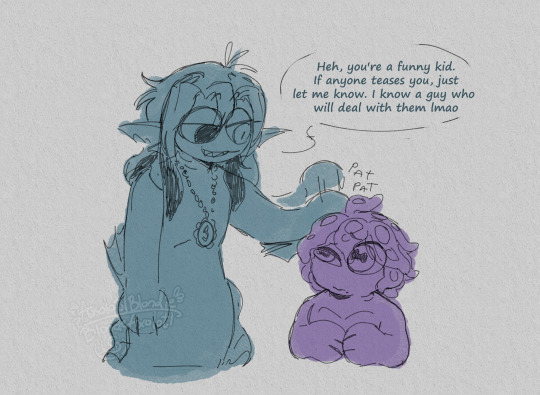
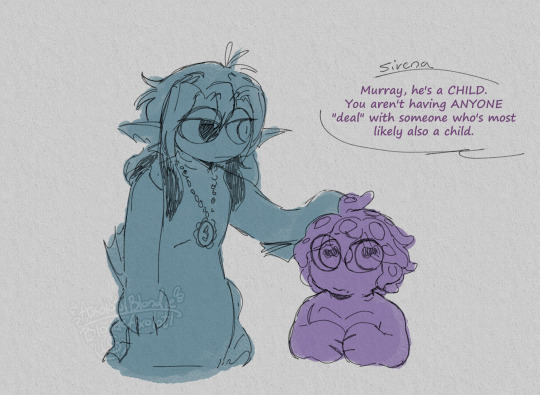
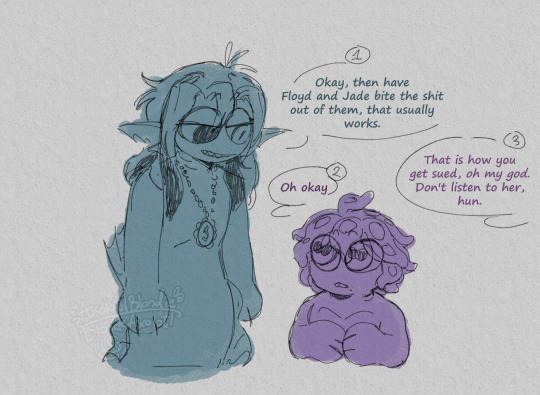
It's- it's the thought that counts ig. Azul's step-dad isn't really fond of her because she says stuff like this a lot
#Now did Azul take Murray's advice#during school in coral sea.. not really. But in NRC is a different story he just tells the tweels to just full on attack if needed#reminder Murray is somehow a grown woman with two kids 💔💔💔#💜- murray leech#💜- sirena#💜- ask#💜- rambles#💜- monoduke's art#twisted wonderland#twst#twisted wonderland fanart#twst fanart#twst ocs#twisted wonderland ocs#parent ocs#azul ashengrotto
215 notes
·
View notes
Note
I want to know more about Top Hat past before she became a member of the Star Fleet
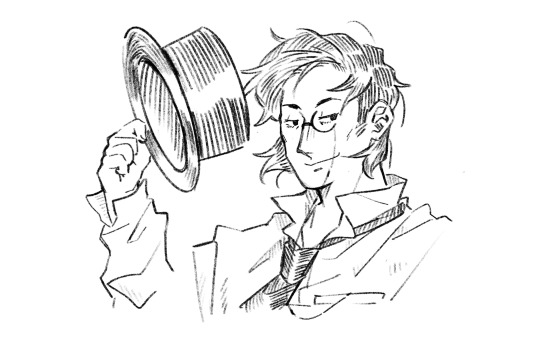
alright it’s time to strap in because this is gonna be lengthy and heavy at certain points
cw: japanese colonialism, mentions of misogyny and toxic masculinity, internalized transphobia
hwang dong-ha hailed from keijō, which will eventually become seoul after korea gained its independence. at that time, korea was under the japanese colonial rule, and mass industrialization progressed at a rapid speed. dong-ha’s father worked as a laborer at a railroad construction site, and despite the hardships the family faced, dong-ha lived an uneventful childhood. that’s just how things are with other families, she thought. dong-ha had little interest in playing with other children and prefers accompanying her mother at home.
as the iron grip the japanese empire had on korea tightened, the hwang family’s living condition didn’t seem to get any better. in 1921, the hwang family moved to the states, looking for better job opportunities. at least dong-ha still has her parents.
after dong-ha’s father’s contract as a plantation worker in hawaii expired, the hwang family decided to open their own business in san francisco, utilizing mrs. hwang’s specialty in sewing. a small tailor shop/boutique that specializes in western coats and suits, squeezed between a tight row of stores. things were going slow with the culture difference and all, but business picked up at a steady pace after the hwang family met other korean immigrants in the neighborhood.
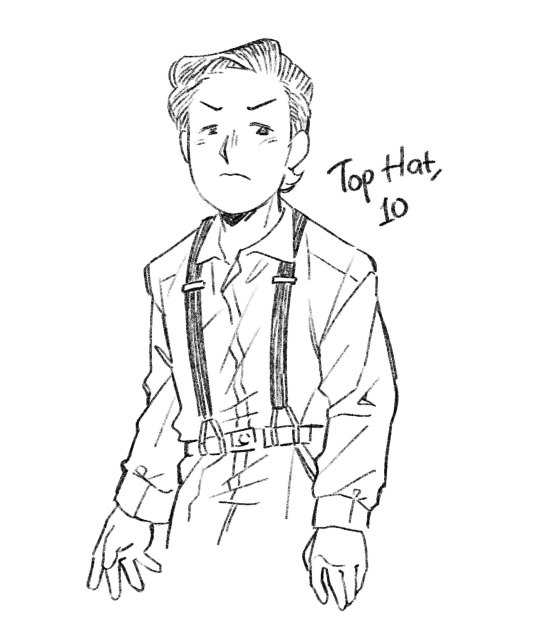
due to her upbringing, young dong-ha held onto rather conservative beliefs regarding success. her father is stubborn about the way things have to be done and that rubs off on her. look, dong-ha. look at what we have now! see? if you work hard, you’ll make it in life. you’ll always be rewarded. you wouldn’t have imagined this kind of life when you were a kid!
those questionable words of encouragement didn’t permanently work on dong-ha, though. as she grew older, dong-ha questions more of her world – what will she be doing in the future? will life always be like this? where does her agency start and end? will her world only consist of her, mother, and father? and like every single teenager out there, dong-ha rebels.
the hwang parents noticed dong-ha sudden interest in how she presents herself. if she wasn’t taking enough interest in fashion already, she’s now dressed to the nines in glossy suits and thick coats (conveniently conceals her figure, definitely not some foreshadowing) and acting like some sort of elite socialite, much to her parents’... worry. dong-ha had always been obedient, but attempts at suppressing her just resulted in her pushing her parents away more. she was just having fun with self presentation, being raised during grueling times, and her parents were being annoying about it? fine. she’ll seek her own people.
dong-ha’s companions throughout her young adult years were sons from upper class backgrounds. although her family is not wealthy, dong-ha was friendly and said yes to everything. being invited to cabarets and bars for pool games has now become a regular occurrence to her. she even acquired her liking towards wine from these outings. she will be normal. she WILL fit and everyone WILL like her and her clothes. and her personality – speaking of which, dong-ha becomes more arrogant and self-absorbed as she spends more time with these people. she often lied when asked about her personal life, losing more of her humility. and after a particular incident that got mrs. hwang dragging dong-ha back home in front of her friends, her relationship with her parents deteriorated.
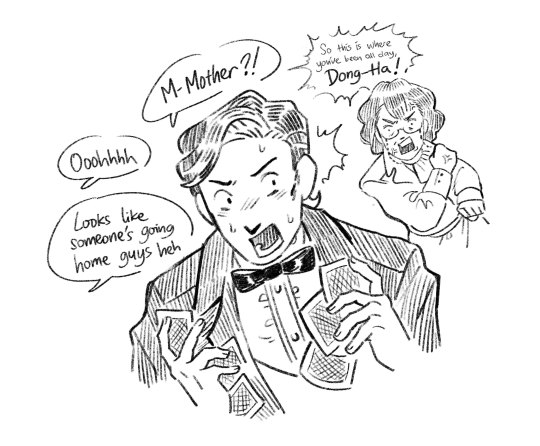
as time passed, dong-ha grew increasingly wary of the subjects her “friends” discussed. how their parents become rich not out of hard work, or how the working class aren’t working hard enough, or the way they talk about women, or the way they view marriage as something transactional, or children… it’s all disturbing to dong-ha. but she doesn’t have any other friends. these men were her only companions besides her parents, and she had to stick with them. that’s how men are supposed to be. this is what she had to do.
this poses another problem – dong-ha was supposed to be a proper “man”. not to mention that she’s the only “son” that her parents have. is this what it means to be a man, then? be crass and rude to assert their dominance? flaunt their physique? fall for women and have them for himself? dong-ha is disgusted, but they aren’t… as if it’s something natural. it doesn’t make sense, and when people can’t make sense of something, they get angry. a man is supposed to be masculine, dress the part, control those below him, woo a woman, then marry her. that’s how things are supposed to be, damnit. but she doesn’t like any of this. dong-ha felt like an outlier.
dong-ha admires women not in a way that’s supposed to fit how a man is expected to: not in an attraction, borderline domineering way, but as if they’re something… graceful. nigh unattainable. they’re resilient and beautiful. they’re beautiful not because she wants them for herself, but because they just are. she was disinterested in the idea of masculinity before, only performing it because that’s what is expected of her, and now she’s wholly appalled by it. looking back, she preferred the days when she was younger and helped her mother with sewing rather than mingling with loud, callous, and misogynistic men.
dong-ha’s friends noticed how dong-ha became less talkative, only drinking with a condescending glare directed at them. she averts her gaze when they were talking about annoying maids or girls, and the streisand effect gets into work. they’d poke fun at dong-ha and joke about how she probably had a bad night; “do you not like women? did a girl reject you or something? you’re being so weird, dong-ha.” and she still had to put on a facade. “they’re so annoying. but what if they aren’t, and the one who’s wrong is actually me? utter nonsense, dong-ha. have some self respect.”
so comes the turning point. after a late night out drinking her frustrations away, she came back home to think about reconciling with her parents and retreat back to her small world – consisting of just her, mother, and father. though she constantly goes back and forth between thinking she’s in the right and feeling guilt towards her parents, the latter of the two consciences won. she found mother and father in the living room that night, and a verbal fight quickly broke out. despite her attempts at apologizing, mother and father kept scolding dong-ha, and in reflex she came to her own defense. dong-ha’s father ended up making hurtful remarks about how she’s an ungrateful son who never appreciates what they have, instead distancing herself from her family to hang out with random wealthy strangers, and how he hated the way she always flaunts herself and other nitpicky things and that clearly cuts deep. because she has never seen her father this mad before. and her mother just stares at her, unmoving. not only is the world outside confusing, now her own world has been tainted.
she is furious. and prideful. and stubborn. wait, she is? she’s stubborn? no. it was them! they don’t understand her. nobody ever does. she’s the one who’s unlucky. the world doesn’t give her the answers even though she has asked so many of them. everyone’s just so incompetent! beneath her!
having given up in trying to make sense of the world outside her own, the disillusioned dong-ha moved to bigg city port while only leaving a single letter to her parents. she needed a new scenery to escape this contradicting world. no more family boutique, no more hangouts with the narrow-minded morons she used to call “friends”. she didn’t fit in with them, or anyone, really – is there really a place for her in this world? logically, there should be. dong-ha is prideful and stubborn. she believes she deserves much more than what she’s given as much as she feels sick at herself.
the boundless sea stretching beyond the docks and piers gained dong-ha’s interest. she asked for a job and some guy directed her to a certain captain archibald star. dong-ha landed a job in bigg city port as a helmsman for the star tug & marine. she was assigned the #4 railway tug “top hat”. captain star’s bouts of american patriotism often made top hat raise an eyebrow, but he was a pretty okay guy. as long as she views him as her employer and nothing else. still, she is quite vain, and due to a lot of dockside workers being men, top hat viewed everyone around her as beneath. doesn’t matter if you’re a star, or a zed, or the two idiots (her own words, not mine) from the railhead, there’s a high chance top hat has broken down your character and constructed several lists of thesaurus-sanctioned phrases personalized just for you inside her head.
though… dong-ha’s coworkers were far, FAR better than her “friends” from her youth. they actually have something meaningful to discuss during breaks besides objectifying women and money and other weird things. hercules is nice and pleasant to talk to, not to mention his open mindedness that earned top hat’s liking. warrior and big mac often gave her headaches, but they put up with her bouts of vanity with a wisecrack or two, much to her surprise. OJ was annoying at times, him being the wisest yet kind of old fashioned, but he’s still decent company. eddie and frank… they’re thing 1 and thing 2. (she likes them. nahhhh she doesn’t. that’s just how she is. actually she does like them. she’ll knock herself on the forehead before even smiling at frank and eddie.)
the stars (some of the zeds too, but you know how they are) also didn’t make any weird comments on how she likes to dress extravagantly even during hot weathers, and even if they did, said comments only go as far as mentioning how fitting it is with her character, nothing more. this is all pre-FBC, and she was still referred to with he/him pronouns. though top hat still hadn’t figured out that she’s a woman because she didn’t realize it’s an option for her (due to the morons she used to hang out with), she has thoughts about ditching the concept of being a “man” fully after reminiscing about how she’s often uncomfortable at being referred to as a “man” or anything that points out her lack of interest in anything masculine. her self discovery is further supported given the healthier environment she’s in, and the revelation that she wasn’t the only person who dealt/was dealing with gender issues (there’s hercules who broke the news for her, then she later met lillie, then ten cents, then sunshine, then boomer, then zip (THIS IS A WHOLE NOTHER CAN TO OPEN)) led to her embracing herself as a trans woman. fortezza bigg city is a tough story for the young’uns like ten cents and zip but things are much better on top hat’s side at this point
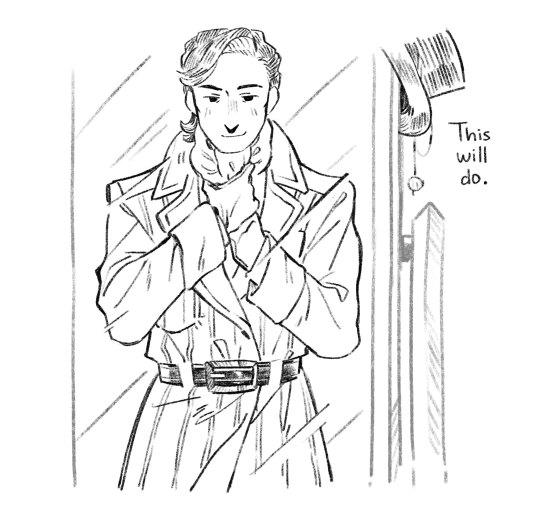
of course, like how everything in this world follows a certain order, this is top hat’s world now. by the events of fortezza bigg city, at the age of 27, top hat is still her usual prideful self, but she’s working on being more compassionate towards people around her (lord stinker says hi). she’s sharp and quick-thinking and is quick to make stinging remarks just for the fun of it, but what’s top hat without a one-liner every five minutes? she’s no longer bitter and withdrawn. top hat’s having fun now <3
#asks#sole-di-fragola#this is tugs#tugs top hat#fortezza bigg city#senjart#her story is fun to write because I'm indonesian (batak specifically) and well. the japanese weren't kind back then!#AND THE GENDER STUFFFFFF AND THE TWO WORLDS STUFFFFFFF AND HOW WE'RE ALMOST THE SAME IN CHARACTER#sometime later she meets zayin and ohohoho that's for another story ;9#I'd like to think she gives off advice about how she views gender to boomer. in her own special top hat brand way of course#screw the patriarchy.... WE'RE BALLING#if I see any of you being weird I'm gonna turn on my red sharingan mystic demon eyes and unleash my powers. big senja is not playing
129 notes
·
View notes
Text
answering all questions from my inbox

SHIFTING & LOA
I'm gonna shorten some very long questions. Those have been collected dust for a long time so sorry for the wait. And sorry if sound mean in some of them, I was trying to be direct.
Question=purple
Answer=black

Twin, is there some mental work could do, cuz I Iwk feel like I can't manifest anything💔
Depends what your "blockages" are, even tho I don't really believe in them there's definitely stuff that can make it feel harder to do. Best advice is to sit down and write out your beliefs (how manifesting works, etc.), what you’re doing (are you always changing it up or doing the same "methods"?), what your problem is, and what you could be doing differently to change your mindset. You are the biggest answer to all your questions, so just sit with yourself a bit and figure it out, twin
From: @daffodilshifts
I saw sm videos and posts sying that shifting needs a state which u get when u sleep 5 hours or smth.. is it right ?
No, don't believe stuff that say you HAVE to do something for certain amounts of time for it to work, because what you are doing is affirming it. You can do anything in a second and even less.
this is controversial but i really believe some people on here don't actually want to shift. like they do, of course, and spend their whole time scripting and posting about their s/o's and whatnot (which is totally cool! i do that too) but they kind of treat it as a fanfiction that is not achievable. ugh i hate to say it but i really think some people should just get off all these platforms and actually focus on their shifting journey instead of crying that they never shift.... like have u considered... maybe.... maybe... you complaining all the time about not shifting could... maybe... play a role in you not shifting??
I think a lot of shifters want to shift but don’t identify with their DRs, like they aren’t emotionally connected to them (which isn’t a problem in itself—you don’t need to be connected to your DR to shift), but the desire to actually be there may not be as strong. So a lot of shifters may not actually want to shift to a DR but see it either as an escape from reality or a fun little thing. But I do think the majority of shifters do want to shift. Also, my biggest problem with shifting at one point was being on social medie too much and in general shifting spaces, so it might help some people to take a break.
How much of a time difference between cr and dr is possible? And I remember hearing back in the day having too much of a time difference could cause a problem when you shift back.
Any difference you want, absolutely no limits. And it wouldn't cause any physical problems, for some people it mentally too much. Know your limit and you'll be fine.
hii!! I'm not sure if anyone has asked this before, but I really reaaally need your help: (I think the fear of not returning to the exact same reality is what anchors me to this reality and stops me from fully shifting. So, my question is, if I shift and then come back, is it really the exact same reality I left, or just a very similar version of it?
The thing is, it depends on your beliefs. If you believe in the multiverse, you’re constantly shifting through similar versions of realities. But if you believe in the law of assumption, you can definitely shift back to the same reality you "left." Either way, there’s no need to fear it.
How to shift reality instantly?
law of assumption, just assume you did.
wait omg u shifted here? this is so cool!! would you like to share about it, only if you're comfortable w it ofc.
My family was just worse in the other reality, lol. Also, random details: climate change was better in my "original" reality, and some stuff in my room changed.
I tried so hard to shift - by not really trying at all. But nothings working. I'm trying to stay positive, because not believing in myself will only further affect my chances. But I don't know what to do.
I think everyone reaches a stage in their journey if they don’t shift after a while, and that state is confusion. What do I do now after trying so many things and none of them working? Now, I don’t know any of you personally, and I could never tell you exactly what to change to make it work. But focus on yourself, not just your shifting journey, but yourself. Build trust and start learning what helps, what doesn’t, and what you struggle with in general that could be sneaking into your shifting journey. Is it your schedule? Your family? Your emotions? Your routine? I don’t know, but I’m sure you can figure it out and find the answers you need to make it work. (Also, you are never increasing or reducing your chances to shift—they always stay the same no matter what.)
I have a question, how do you I fall asleep and stay focused on ur dr at the same time?, like, every time I'm starting doing my method I can't focus about it, I get so sleepy I forgot about shifting and I fall asleep and then I wake up I realize I'm in my cr. I don't know what to do I even say "if I fall asleep I will wake up on my dr" multiple times but then I doesn't happen.
So, problems with focus? It might help during the day or maybe an hour or so before going to sleep to affirm stuff like, "No matter if I’m focused on my DR or not while falling asleep, I’m waking up there." And if affirmations don’t seem to work for you, then start imagining—visualize waking up in your DR, what your schedule is like, what you’re doing that day, who you’re seeing, etc. That may help. <3
If shifting is as easy as I make it, how do I make it easier? I'm not great with affirmations, and have a bad track record with LOA type shit.
By simply believing so. And I know LOA isn’t your thing, but listen, mann. Shifting was never hard until you made it so. This reality makes it seem so by making us believe there’s nothing more. Start normalizing shifting—the more normal it is for you, the easier it may be.
I read a post of yours where you say you can enter the void by "contemplating the darkness with your eyes closed." I've tried it, and I don't know if it sounds weird, but my breathing is causing me to lose focus. So, I don't know what to do to just stay focused in the darkness and not have the outside world attract my attention.
If the noise of your breathing is genuinely causing distraction, you could use some background noise because you can’t stop breathing, pooks. What I meant by it is focusing on or staring at the darkness behind your closed eyes, by doing so, letting yourself wander until you’re in the void. (I believe this is about one of my void posts, not sure.) You don’t need to hyperfocus on the darkness, but it helps you zoom out and zoom in on your thoughts.
how can i manifest my dream body overnight?
Like you would anything else, no difference. My go-to is, "I have this," "This will happen," and I just assume it & affirm it once and go about my day.
hi so i'm a baby shifter and i have this crush at school in my cr and I truly know not that much about him i only know some stuff about him and i have heard things abt him. so in my script can I script he already acts the way he does in my CR so when I shift will he act the way he already does (if this does not make sense I am so sorry I wrote this half asleep💔)
Very cute, first of all—good tea. And yes, he will act the same way he does here, but obviously, he’ll have a lot of personality traits you don’t know of here, so yeah… be mindful, pooks.
Hiiiiiiii!!! just wanted to ask about ur experience with ur memories when you shift, like after you shift to ur desired reality, at first do you keep remembering things from your previous reality or does it take a while to remember memories from that desired reality? I'm kinda scared that when I shift for the first time I might not remember stuff and I don't want it to be awkward Imao.
Everything won’t come flying at you and hit you like a brick wall the moment you shift (because why would that even happen to your DR self unless you scripted it?), but it will be very normal and not awkward. Imagine you’re speaking with your friend and they say, "Remember that thing we did yesterday?" You weren’t thinking about it—you just shifted this morning—but your brain will recall that memory just normally, like it would in this reality.
can we shift to a fictional dr (ex, stranger things) for a however long and script waking up in a better cr or a parallel reality where everything is the same but one thing is different? I was wondering if you or anyone has done this before?
Yes, yes, yes, absolutely. There’s never a "no" in shifting, basically, in terms of what you can do.
What if there's deadline for some of us? Like a really crazy one, and it gets to a point where you can't even think properly because you're way too desperate to shift? What to do in THAT kind of situation?
There’s never a definitive time where it’s the end line, there will never be a time like that. Shifting is infinite, and so are you. But can it get to a point where you emotionally feel so desperate and tired? Yes. And that still doesn’t set a line for when it’s over, that’s just a call for a break, a much-needed one if you’re feeling like that. The best thing would be to accommodate yourself with time & space, with things that genuinely help you feel better and are better for your mental health here, not even related to shifting. It’s important to take care of yourself.
Hey i have schizophrenia and struggle with identifying whats real or not, should i continue to try and shift? It just feels like my parents arnt my real parents ya know, so i am holding out hope to find another real person and not just a shell:] thanks!!
Also you said you've only been in this reality for a year right? How does that work/gen
So, I’m going to answer the easier question first, lmao. I have not expressed myself right, it’s been a year since I shifted here, but I’ve always existed in this reality. So, I’m going to assume my shifting journey and yours may be very different because of schizophrenia, and I’m going to try to give my best advice. Shifting is a personal experience, so personal accommodations are a thing, of course. I’m never going to discourage anyone from shifting, but I would say if things start to feel unstable or bad, that would be your sign to take a break. I can’t express it enough, attend to your mental needs here. Extra thing: you are not a shell. I hope you explore shifting and balance it with taking care of yourself as well. Much love, xxx.
Hi love I was meaning to ask something not shifting related but kinda? So, basically I've been using the loa to revise and therefore change my life. I was wondering if I was going in the right direction doing it, it's a very wide question I know but that's all I care about, really.
It’s your choice at the end of the day. I encourage change if it’s good. There’s no wrong in wanting something different. :)
Hey I recently heard of astral projection and I also heard it is kind of concerning and dangerous. Now I'm kind of scared that I astral project while trying to shift. I heard it happened to someone cause ur also being very aware of ur surroundings... I have intrusive thoughts abt this sm that when I try to shift i keep thinking about it and try to astral projection even if I don't want to:(that makes shifting more scary for me.)
Shifting and astral projection are based on your assumptions. You won’t astral project during shifting since those are two different things. But my opinion is that astral projection isn’t as dangerous as people make it out to be. It depends on your beliefs, but you are a soul with free will, if you assume that you are protected and safe spiritually, then you are. I promise you, there’s no need to fear those things. Some people astral project on accident, but with a single thought, you can just get back in your body. You’re never stuck anywhere. :)
What if I’M the brain and the BODY is the consciousness…?
So?.. Your consciousness is not your brain or your body, it’s nothing physical, actually. Consciousness goes beyond the physical body and mind.
hey, will i still shift if while im attempting my thoughts keep wondering to my cr? Like i will finish my method and all i need to do now is go to sleep but the way i do that is let my train of thoughts flow and somehow even after mh method my thoughts will always lead to my cr.
Your thoughts don’t ruin your shifting attempts, they don’t matter at all unless you make them matter. It’s fine if your thoughts circle back to your CR; you’re not attached to them, so just let them be and sleep. You are what makes yourself shift, and your thoughts can’t stop that. You can absolutely still shift even if you’re distracted by thoughts of your CR.
Heyy I've been tryna shift js can u gimme some uk motivation like "how great its be to in my in better cr" like that stuff...bcs I dont have anyone here that understands the concept (they might think I'm crazy shi)can u?only if u are comfortable with that(ps some tips too)tough times actually...and I found ur blog like an hour ago and I'm obsessed gurlIIIl love uhhh
Thank you, but I think I understand, so I’mma just start yapping: How great is it to be in my better CR and actually have money? How good is it to be in your better CR where you can have everything you want and not even the sky is the limit? How good is it to be in your better CR and finally be a baddie, at peace? How good is it to be in your better CR and have everything you scripted right in front of you?
what was ur og reality like?
Depressing
i would love any advise on how to perm shift to a better cr!
Like you would to any different reality, no matter the timeline or the amount of time you’re staying. It’s no different.
i don't want to make anyone uncomfortable with this- but i really miss my brother who died* this january. is there any way i can meet him i want him back...
You’re not making anyone uncomfortable, pooks. But yes, you can definitely meet him again. Shifting to a reality where he didn’t pass away would be my go-to. :) I’ve also seen people manifest their loved ones back into their life with the law of assumption, so if you search for LOA success stories on here, I’m sure you’ll find some. <3
1. How long was your longest shifting?
2. Can I shift with timing 1 hour in current reality = 1 year in desired reality? Will it work? Will I really be there for a year?
3. Is it possible to stay in the desired reality forever?
Well, this reality, but I feel like that’s boring. My longest shift was to my HP DR, and I was there for a couple of hours (shifted at night and shifted back before classes started). Second and third question: yes to both.
You said we can enter void state by putting our mind out off 3D, what does "3d" rlly mean here? The physical reality as in my body? I can still daydream about my stuff in my past and talk with myself ryt?
3D means three-dimensional, so the physical world and everything observed in it. Basically, the reality around you. And yes, you can still daydream and talk about anything.
Hello! I wanted to get advice about not being so sensitive about anti-shifters and things like that, it's like I see one comment or video and I immediately start doubting I'm not sure why I do that but I'd appreciate any advice thanks in advance
To reassure you, shifting is real, I’ve done it, and so many other people have, too. It’s important to remember that this community wouldn’t last as long and as strong as it has if shifting wasn’t real. A lot of anti-shifters seem weirdly obsessed with either proving shifting wrong or making fun of it. Remember, if those people are doing that, they probably have nothing better to do and are bored. You, however, can literally shift realities and experience everything you want, so don’t reject that simply because some people say it’s not real.
how do i know when to open my eyes when i shift?
So, you just… know? Idk how to explain, but maybe go with either scripting that you’ll smell something specific when you shift or that your eyes will just open by themselves once you’re in your DR.
Why is it considered to be quick and easy to shift from your dr back to your cr but it is hard or more slower to shift from cr to your dr? Even after you have experienced shifting etc.
Wrong assumptions based on misinformation could be an answer idk
hey! idk if this is a dumb question, but when you're deciding to shift to a different reality based on a show you like, how do you deal with wanting to be in a relationship with a person who has an [implied] cannon relationship with someone else in the show? i know all realities are infinite and i can shift to a reality where mine and my s/os relationship is cannon, but it still feels weird.
Soooo, I hated this when I first fell hard for my s/o. My best advice? Block them. ABUSE that block button. And if your s/o is from a show or something where you have to see them, just start watching it as if it’s your DR. Like, "omg my s/o and [person] have such a sibling bond." Be evil about it and fight the demons, idk what to tell you. It’s rough out here.
How to intimidate men?
Hm? Like in a loa type shit or? Not gonna lie this one has been sitting in my inbox for a while, still not sure how to answer it. But if you are reading this and found out drop a update. I support this wholeheartedly so would love to it hear it

#reality shifting#permashifting#shifters#answering asks#shifting community#shifting advice#shifting motivation#scripting#shifting reality#shiftblr#shifting blog#shifting realities#shifting consciousness#shifting antis dni#shifting diary#shifting to hogwarts#shifting stories#shifting asks#shifting affirmations#shifting awareness#shifting diery#shifting discussion#shifting doubts#shifting dr#loassblog#loassumption#loa tumblr#loablr
64 notes
·
View notes
Note
Hii!! I came across your blog and immediately followed since I thought I might needed some help with my fanfics, and if there's one thing I'm bad at is describing fight scenes with like guns or magic, I've been struggling to write it and did some practices and didn't like how they came out, I'm hoping if you can do some fighting prompts, I hope this isn't too much!!
How to Write Fight Scenes
-> check out @howtofightwrite , they are an excellent resource for writing realistic fight scenes.
Set the Stakes Early
Why are they fighting? Establish the stakes of the fight clearly before it begins. If the reader understands what’s at risk, they’ll feel more invested. Stakes could be personal (revenge, survival), emotional (protecting a loved one), or strategic (achieving a mission).
Use the Environment
Incorporate the setting to add depth and realism. Are they fighting in a cramped alley, an open field, or a crowded city street? Describe how the environment affects movement, line of sight, or weapon use.
Vary Sentence Length for Pacing
Short sentences create tension and speed, while longer sentences allow for brief moments of reflection or description.
Incorporate Sensory Details
Highlight the senses beyond sight to ground the reader in the fight. Describe the smell of sweat, the metallic taste of blood, the weight of a sword, or the deafening roar of a gun.
Example: “Her ears rang as the blast reverberated around the alley. Smoke filled her nose, thick and choking, but she ignored it, tightening her grip on her weapon.”
Focus on Key Moments, Not Every Movement
Avoid blow-by-blow descriptions. Instead, highlight critical moves, reactions, and turning points to keep the scene flowing and avoid overwhelming the reader.
Show Physical Strain and Fatigue
Fights take a toll, especially over time. Show characters struggling to keep up, panting, sweating, or even stumbling as exhaustion sets in.
Example: “Her arms ached, each swing feeling heavier than the last. Her breathing came fast, ragged, but she couldn’t stop now.”
Capture Emotions and Mindset
Mix action with glimpses of your characters’ thoughts and emotions. This adds depth and reminds readers why the fight matters.
Describe Injuries Believably
Injuries impact the pace and intensity of a fight. Showing injuries realistically adds tension and makes victories feel hard-won.
Example: “She hissed as pain flared in her side where his blade had grazed her. Her vision blurred, but she forced herself to stand, one hand pressed to the wound.”
Build Up to a Climax
As the fight progresses, increase the stakes and bring tension to a peak. This could be a devastating blow, a risky last-minute decision, or a surprising twist.
Example: “He was backed against the wall, nowhere left to run. She raised her hand, a final spell crackling in her palm, the light casting a fierce glow in her eyes.”
Conclude with a Realistic Aftermath
Show the immediate aftermath of the fight: physical exhaustion, injuries, and the character’s emotional response. If they won, are they triumphant, relieved, or traumatized? If they lost, what happens next?
Fight Scene Prompts (with Magic)
-> feel free to edit and adjust pronouns as you see fit.
As they crept down the dim hallway, the flash of gunfire exploded from behind, forcing them to dive to the ground, bullets ricocheting off the walls around them. She barely had time to pull her weapon, pressing her back to the wall as footsteps drew closer. With a steadying breath, she waited for the right moment, then spun, firing off two rounds that hit their marks with surgical precision. The hall fell silent, the smell of gunpowder hanging in the air.
Electricity crackled around his hands as he stalked toward his opponent, energy building in his fingertips. She mirrored his stance, blue flames licking up her wrists as her gaze narrowed. He made the first move, sending a bolt of lightning in her direction, but she countered with a quick flick of her wrist, sending the flames forward like a living shield. Sparks flew as their magic collided, the force of it rattling the metal beams around them.
He ducked behind the dumpster as gunfire erupted, bullets pinging off the conjured barrier that surrounded him. He gritted his teeth, feeling the strain as his shield flickered with each impact. His opponent advanced, shouting taunts over the noise, but he focused, raising one hand to push the barrier outwards, turning it from defense to offense. With a growl, he flung the shield forward like a battering ram, the force slamming his opponent back against the alley wall.
They ascended into the night sky, wind whipping around them as spells flew between them like streaks of fire. He could barely keep up, dodging her relentless attacks as the city lights twinkled below. Finally, he unleashed a burst of energy from his hands, the force spiraling outward in a shockwave. She managed to deflect it just in time, retaliating with a beam of light that sliced through the night like a comet, forcing him into a desperate mid-air roll to avoid it.
#writing prompts#creative writing#writeblr#dialogue prompt#story prompt#prompt list#ask box prompts#how to write#how to write a fight scene#fighting prompts#fight scene prompts#fight scene#writing advice#writing tips#writing resources#writing help#writing reference
1K notes
·
View notes
Note
I'm the exam anon 💖
I'm affirming!
Can u just give me some subliminals and guided meditation.
And some posts who explained it well ! Or some success stories.🫂
Before I give it to you, a word of advice
I will but please listen to me when I say stop searching. Stop trying to find motivation or information or look for a "key". No. Assume you have it/think as if you have it (affirming), and do not go back on that. You shouldn't affirm "I have it I have it I have it" and then when you're done switch to "ok but how do I get it", those are conflicting.
You have it. Stay in having it.
Don't strategize. Just affirm.
You know enough. You don't need to know more. Repetition impresses the subconscious mind. That's all. Just affirm. When you finish these get offline and focus on staying consistent. You can do this, let yourself do it.
Lock in.
Links, as requested
Affirming "correctly" | To clear things up.
Everything you need to know | this one's really good.
Persistence over perfection | aka stop trying to "fix" it
Similar situation to you
Subliminal
Success stories
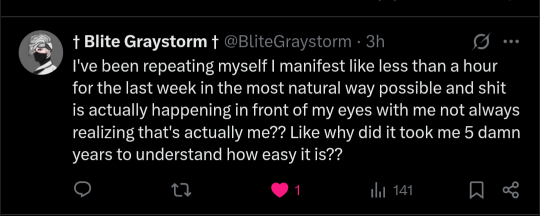
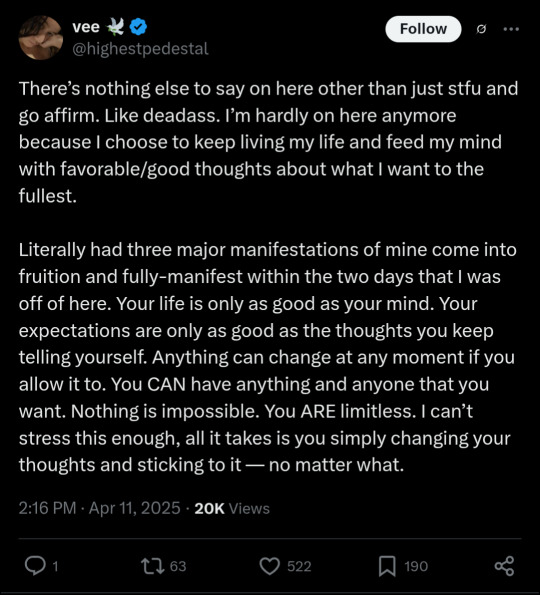
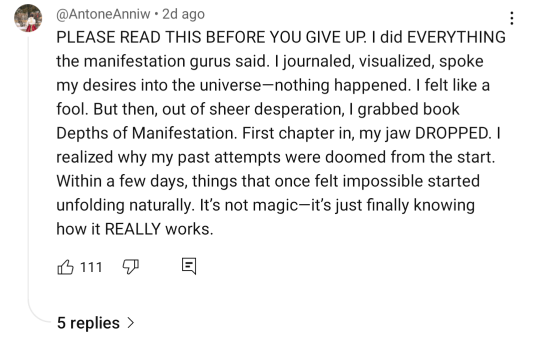
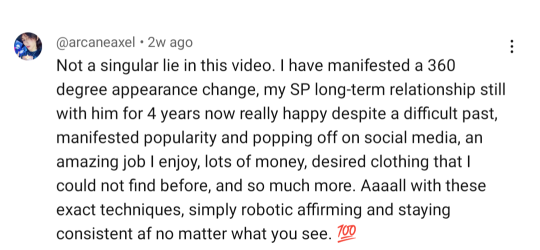

#loa tumblr#loa blog#reality shifting#shiftblr#shifting antis dni#shifting community#loassumption#shifting#loablr#loassblog#loassblr#loass#loass states#loa affirmations#loa advice#loass post#loa assumptions#loa assumption#loa ask#affirmyourlife#affirm#affirmdaily#affirmations#affirmyourreality#affirm and persist#robotic affirming#robotic affirmations#manifestation success story#loa manifestation
67 notes
·
View notes
Note
i was a reasonably big beatles fan for a while before i actually started learning more about the break up and solo years so i saw that idea of pr genius paul and unfiltered truth teller john repeated constantly. and i remember being just FLOORED when i learned paul spent the immediate pre breakup period secluded on a farm literally throwing buckets of water to chase off reporters and his big solo album aunt involved a bizarre q&a specifically because he refused to talk to individual press. while john and yoko literally gave like multiple interviews a day for much of 69-70. honestly, they were so good at it the idea is pervasive today even with people who are otherwise really savvy and knowledgeable about the beatles that i would expect to know better. even a lot of people who admit john and yoko were canny with the press still repeat the pr man paul trope.
I knowwwww. Thank you anon - I love the point about Paul and his buckets of water.
The disconnect is extraordinary. And in part it's a sign of how effective John and Yoko were - but you'd think, by now, people would have noticed how limited Paul's PR skills were.
TheyMayBeParted's rundown of the days leading up to the Get Back sessions have a fascinating contrast between Paul and John's PR approaches. On holiday in Portugal, Paul calls an impromptu press conference on the beach - the deal being, he'd speak to all of them at once and get it over with, giving them quotes and photographs in exchange for being left alone. Meanwhile, John and Yoko manage to give tailored interviews to three separate news teams during John's appointment at the dentist.
And that's really the difference: John and Yoko have a coherent message and are working proactively and very hard to get it out. Paul is basically doing damage limitation. He's doing his job, while trying to protect his privacy.
In the decades since, he's obviously got better PR teams, but he's still not a natural at it. For instance: Carpool Karaoke was a really smart PR move for him. It's been viewed 68 million times, with a very positive impact on his reputation. But he didn't recognise what an opportunity it was, and tried to pull out multiple times.
Interestingly, there's a suggestion that he was particularly nervous about going back into Forthlin Road: I suspect because he knew memories might make him emotionally vulnerable. John was never an "unfiltered truth teller", but he was phenomenally skilled at using his genuine emotions to turbocharge his narratives. Even now, Paul is freaked out by the idea of revealing himself like that.
#ask#tag for mine or my addition#john and yoko's pr genius#the idea of paul masterminding the beatles narrative is so funny#he's so shit at it#he can afford very good advice#but even that depends on whether he actually takes it#i mean sure he's pushed back against existing narratives#but successfully shaping a story? planning an effective long-term campaign? c'mon#also#remembering mike mccartney being hit by emotion in the programme about the restoration of forthlin road#it's enormously touching but obviously hard for him#i think john recognised that moments like that made people like him#and that he could make use of that#while paul pulls all his walls up and hides under the bed#i don't mean 'making use of it' as a criticism btw - it's a skilled and conscious choice and i respect that
65 notes
·
View notes
Note
What is a good way to start a novel? (sentence frames)
Are you a creative writer struggling to get started on your next project? Do you find yourself staring at a blank page, unsure of where to begin? Fear not! Here are some sentence frames designed to inspire your creativity and help you generate story ideas.
Get to know your main character
[Character name] was not your typical [profession/role]; in fact, they…
Despite being [adjective], [character name] had always felt…
[Character name] had a secret, one that they had kept hidden for [time period]…
As [character name] looked out the window, they couldn’t help but wonder what life would be like if…
[Character name] had always been drawn to [hobby/interest], but had never had the courage to pursue it until…
The day [character name] met [another character], everything changed…
Setting the scene
The town of [name] was known for its [unique characteristic], but beneath the surface…
In a world where [fantastical element] was commonplace, [character name] stood out because…
The [building/location] had stood abandoned for [time period], but on this particular night there was [an event]…
The [place/location] was famed for its [unique characteristic], but [character] found themselves drawn to [thing]…
Introduce conflict
[Character name] had always believed that [belief], until [event] forced them to question everything.
When [character name] discovered [secret/revelation], they knew they had to…
The arrival of [character/object] in [setting] threw [character name]’s life into chaos, as they…
[Character name] had always been content with their [status quo], but when [event] occurred, they realised that they could no longer ignore their true calling.
The arrival of [character name] in [place/location] set off a chain of events that would uncover long-buried secrets and force the [people of location] to confront their darkest demons.
Show character growth
[Character name] had spent their entire life [doing/believing something], but now they began to wonder if…
As [event] unfolded, [character name] realised that they were capable of…
[Character name] had always been afraid of [fear], but in the face of [challenge], they discovered…
[Character name] used to [old behaviour], but now they [new behaviour]…
As [character name] faced [challenge], they discovered a [new strength/quality] within themselves…
[Character name] never thought they could [achievement], but with [catalyst], they learned to [lesson]…
Create suspense and mystery
[Character name] knew that [mystery/secret] held the key to [goal], but the closer they got to the truth…
As [character name] delved deeper into [investigation/quest], they began to suspect that…
The [object/clue] seemed insignificant at first, but as [character name] examined it more closely, they saw [detail].
[Character name] had a nagging feeling that something was off about [person/place/thing], but couldn’t quite put their finger on it until [event].
The [sound/smell/sight] was hauntingly familiar to [character name], but they couldn’t remember why until [event].
Explore character relationships
[Character name] had always looked up to [other character], but now they began to see them in a different light because [event/change].
Despite their differences, [character name] and [other character] found themselves drawn to each other because of [detail].
[Character name] knew that [other character] was hiding something, but they never expected [revelation].
[Character name] and [other character] were once inseparable, but [change] meant they grew apart.
[Character name] never expected to find a friend in [other character], but [character detail/event/location] brought them together.
[Character name] couldn’t shake the feeling that [other character] was hiding [secret] from them.
Remember, these sentence frames are just a starting point to help you generate ideas and get your creative juices flowing. Feel free to adapt, combine, or expand upon them to suit your unique story and writing style. The most important thing is to let your imagination run wild and enjoy the process of writing your novel!
#writing prompts#writing ideas#story ideas#writing inspiration#sentence frames#writing resources#writers#creative writing#writing#writing community#writers of tumblr#creative writers#writeblr#writerblr#writing tips#writing advice#writers on tumblr#creative writing prompt#fic prompt#story prompt#writing prompt#story prompts#let's write#writing asks#writers and poets#writer community#writers block#writer#beat writers block#writer's block
322 notes
·
View notes
Note
Im noticing something something off the recent episode, bustier being Stern with chloe and immediately telling her to sit down, is she more strict in this au 👀
Good catch- yeah, she is. She’s taught middle school for a longer time in my au, and when you teach middle school, you either grow a back bone, or get eaten alive.
#plus if I kept her the same as cannon I would have to explore how bad of a teacher she is which I don’t really want to focus on tbh#I want her to just be a mediocre serviceable teacher that sometimes actually gives sound advice#you’ll probably notice other slight changes in other characters personalities as well#mostly because it better suits the story I’m trying to tell#ask#miraculous coccinella
83 notes
·
View notes